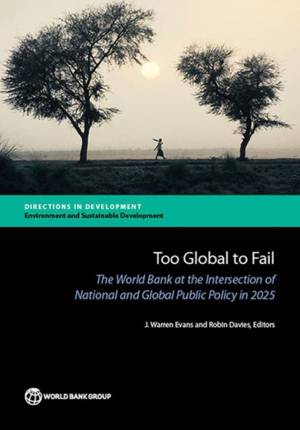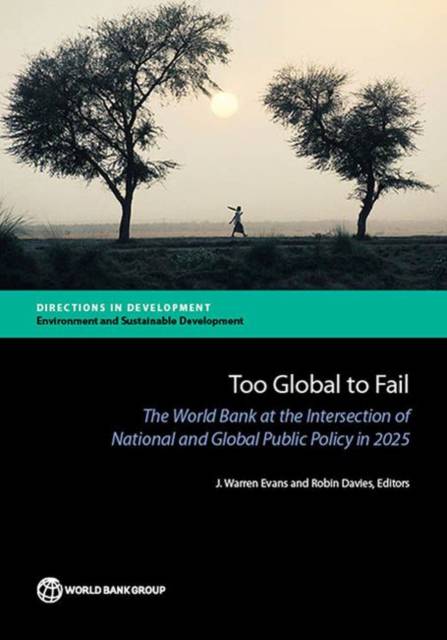
- Afhalen na 1 uur in een winkel met voorraad
- Gratis thuislevering in België vanaf € 30
- Ruim aanbod met 7 miljoen producten
- Afhalen na 1 uur in een winkel met voorraad
- Gratis thuislevering in België vanaf € 30
- Ruim aanbod met 7 miljoen producten
Zoeken
Too Global To Fail
the World Bank at the intersection of national and global public policy in 2025
World Bank
€ 67,95
+ 135 punten
Omschrijving
"This book is about global public goods (GPGs), particularly those related to the environment, in the context of the global development process. We, the co-editors of this volume, are concerned with the long-term sustainability of development, as the distinction between developing and developed countries is expected to continue for the foreseeable future. We contend that global sustainability depends--indeed, consists of--the provision of certain GPGs, and that the prevailing approach to development assistance does not sufficiently recognize this fact. A key question is whether the country-ownership model is even compatible with global sustainability. A second key question is whether the political will exists to make the provision of GPGs an explicit and central objective of official development assistance--especially in the face of objections from those who believe aid should be solely concerned with the eradication of poverty through national or community-level interventions. A third key question concerns the mobilization and use of resources for the World Bank's work to support the provision of GPGs. The Bank is a major player on many regional and global issues, but its work at these levels is usually enabled by donor contributions, most often in the form of grants, targeted for a particular purpose. International development assistance needs to undergo a major transition, such that it takes as an explicit and principal objective the provision of GPGs important for development. The World Bank can play a leadership role in this transition, working within new kinds of coalitions but not abandoning the fundamentals of its operating model. Some of the most important GPGs are provided through the separate and cumulative actions of multiple countries, so the challenge for the Bank is to find ways of investing strategically and sharing knowledge across countries, while keeping faith with their national development strategies, so as to achieve maximum global impacts. The World Bank can also play a unique role in stimulating the private provision of GPGs through risk-sharing and market creation."
Specificaties
Betrokkenen
- Auteur(s):
- Uitgeverij:
Inhoud
- Aantal bladzijden:
- 310
- Taal:
- Engels
- Reeks:
Eigenschappen
- Productcode (EAN):
- 9781464803079
- Verschijningsdatum:
- 1/12/2014
- Uitvoering:
- Paperback
- Formaat:
- Trade paperback (VS)
- Afmetingen:
- 178 mm x 254 mm
- Gewicht:
- 544 g

Alleen bij Standaard Boekhandel
+ 135 punten op je klantenkaart van Standaard Boekhandel
Beoordelingen
We publiceren alleen reviews die voldoen aan de voorwaarden voor reviews. Bekijk onze voorwaarden voor reviews.











